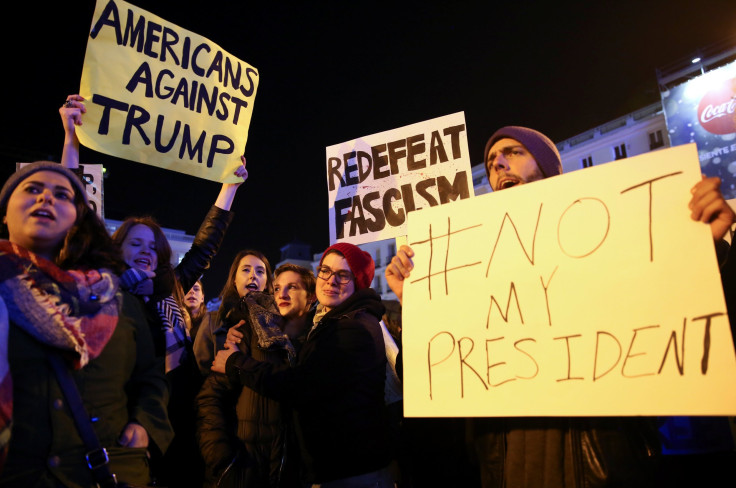Electoral College Vote Update: 'Hamilton Electors' Slammed By Colorado Secretary of State For Trump Opposition

With a quickly approaching Dec. 19 vote in the Electoral College that will officially select Donald J. Trump as the next president of the United States, two Democratic electors in Colorado are fighting an unlikely political battle to prevent the president-elect from assuming office.
Former Secretary of State Hillary Clinton clinched the popular vote nationwide, as well as in Colorado, where the state’s nine electors are required to vote for the presidential candidate who earns the majority of ballots statewide. With only 232 votes in the Electoral College, however, Clinton failed to secure the White House on Election Day, falling short of the 270-vote threshold. Trump garnered 306 electoral votes.
Now, a bipartisan effort among a group in the Electoral College calling themselves "moral" or "Hamilton electors," are urging their peers to cast their votes for a consensus Republican nominee, with potential choices including former presidential candidates Mitt Romney and John Kasich. The electors filed a federal lawsuit Tuesday petitioning the state to allow them to vote against Trump by casting their ballots for an alternative Republican rather than Clinton.
Their efforts were met with immediate opposition from the state’s political leaders, including Colorado Secretary of State Wayne Williams, who likened the movement of "faithless electors" as "odius to everything we hold dear about the right to vote" and "evil."

"Make no mistake, this is not some noble effort to fight some unjust or unconstitutional law; rather, this is an arrogant attempt by two faithless electors to elevate their personal desires over the entire will of the people of Colorado," Williams said in a statement. "And in so doing, they seek to violate Colorado law and their own pledges."
The electors’ lawsuit, which lists Colorado Gov. John Hickenlooper and Attorney General Cynthia Coffman, argues the Supreme Court left state restrictions on state electors in a gray area in its decision on Ray v. Blair in 1952.
But Wayne’s office sees electors as public officers selected to represent the best interest of their constituents, and is taking the matter very seriously. Wayne has threatened to replace both Democratic electors, former Colorado lawmaker Polly Baca and Robert Nemanich, if they continue to pursue nationwide efforts to hand the Electoral College to another Republican presidential pick. The Denver Post reported Tuesday both electors could also face misdemeanor charges if they follow through before a decision is made in their lawsuit, which isn’t likely to happen before the Electoral College convenes for an official vote Dec. 19.
Meanwhile, nationwide recount efforts are taking place in Michigan, Pennsylvania and Wisconsin, spearheaded by former Green Party candidate Jill Stein. A number of voters are also filing lawsuits in Florida demanding a statewide recount to determine whether Clinton in fact was the victor of the Sunshine State and if the integrity of the election was compromised by foreign attacks and reported voter issues at polling places.
None of these efforts are likely to reverse the result of the election. Still, as with everything in a seemingly never-ending presidential election, anything could be possible.
© Copyright IBTimes 2025. All rights reserved.





















